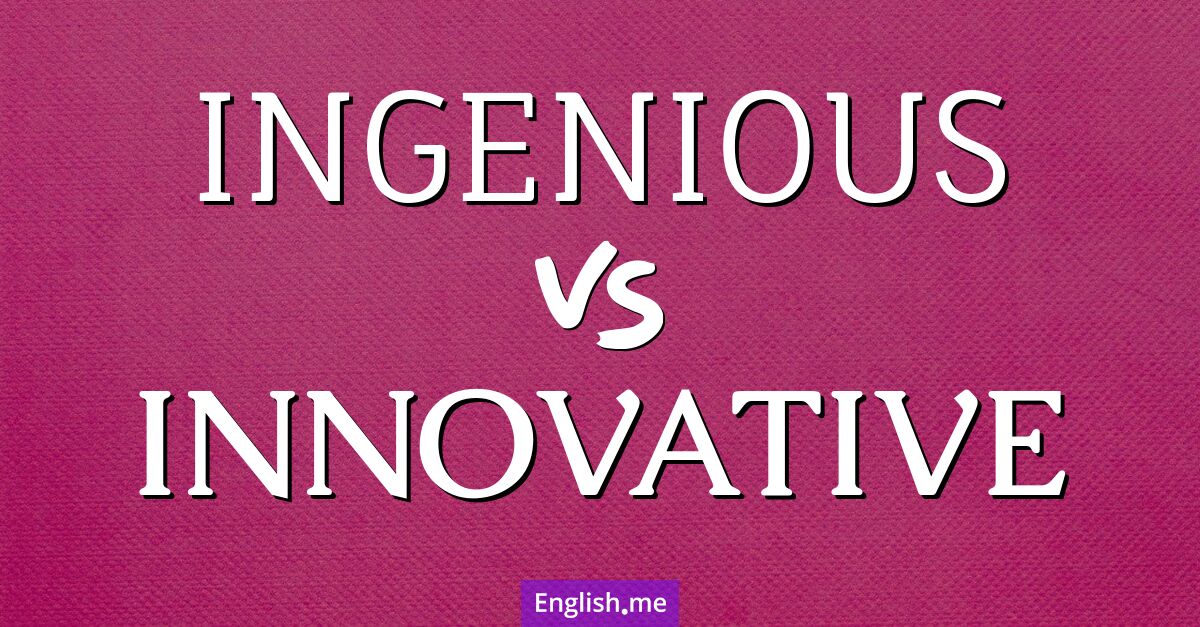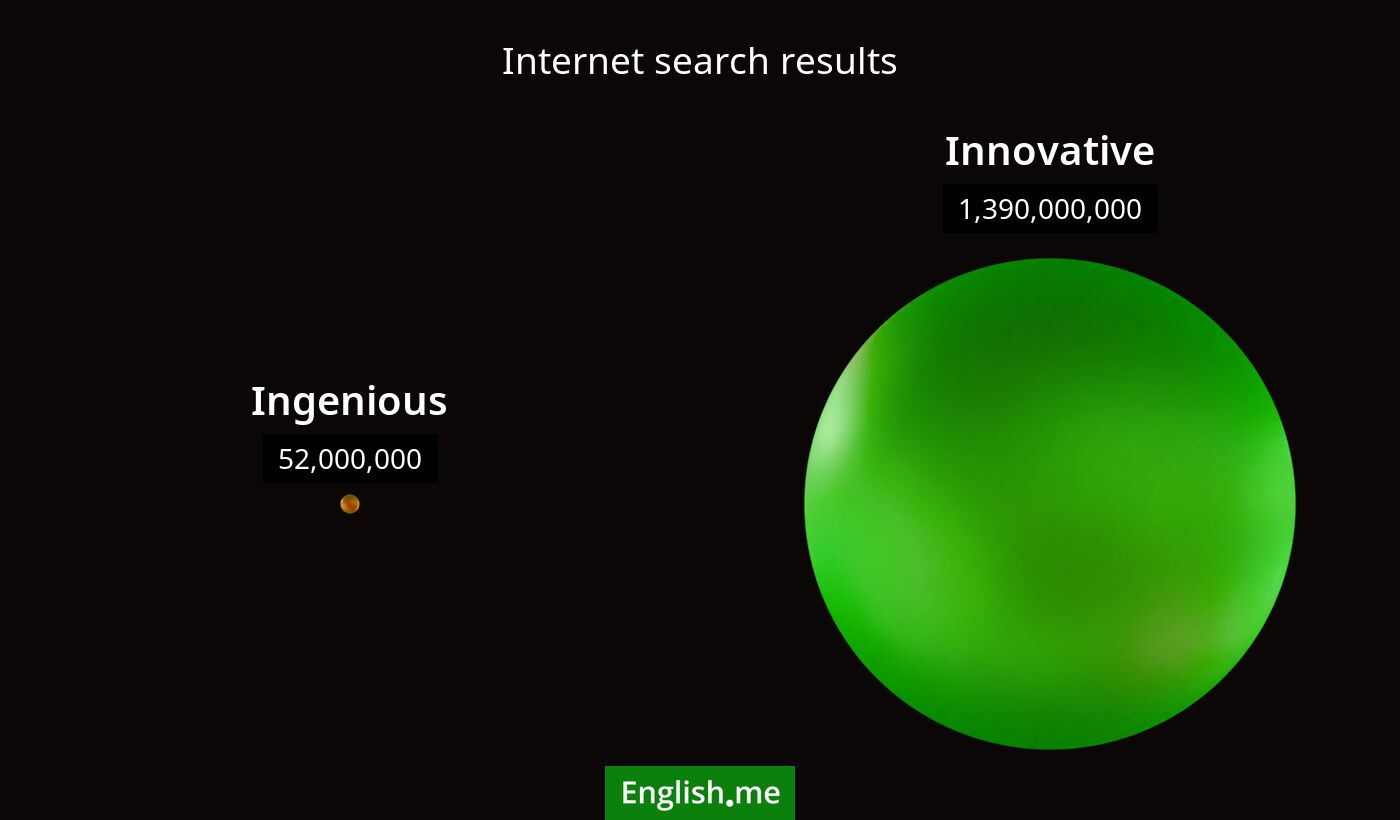"Ingenious" vs. "innovative": comparing clever creativity
Reviewed and edited by  Lloyd Cooper 06/10/2024, 07:32
Lloyd Cooper 06/10/2024, 07:32
English.me team member

 What is similar?
What is similar?
Both words describe qualities related to creativity and originality. They are often used to praise ideas, solutions, or approaches that are novel and effective.
 What is different?
What is different?
Ingenious typically emphasizes cleverness and inventiveness, often highlighting someone's ability to solve problems in smart ways. Innovative tends to focus on the introduction of new methods, ideas, or products, often in the context of technology or business.
 Which one is more common?
Which one is more common?

 Examples of usage
Examples of usage
Ingenious- The engineer came up with an ingenious solution to the design problem.
- Her ingenious idea saved the company thousands of dollars.
- This gadget is an ingenious piece of engineering.
- The company is known for its innovative approach to technology.
- He received an award for his innovative design.
- Innovative strategies are essential in today's competitive market.

 English
English español
español française
française italiano
italiano deutsche
deutsche 日本語
日本語 polski
polski česky
česky svenska
svenska Türkçe
Türkçe Nederlands
Nederlands